
– Shamus, Friday Nov 17, 2006
Our DM has the reverse issue, they can’t get us to go to a town if we’re in the wilderness, or into the wilderness if we’re in town. We always want to be doing whatever we’re currently doing, but for longer.
Thank you, people who comment almost as soon as this goes up at midnight every week. I wouldn’t have noticed that I had screwed up the schedule time if I wasn’t missing your notifications in my inbox.
TitleWhat’s Inside Skinner’s Box?
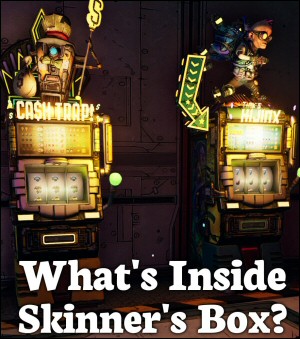
What is a skinner box, how does it interact with neurotransmitters, and what does it have to do with shooting people in the face for rare loot?
Who Broke the In-Game Economy?

Why are RPG economies so bad? Why are shopkeepers so mercenary, why are the prices so crazy, and why do you always end up a gazillionaire by the end of the game? Can't we just have a sensible balanced economy?
Grand Theft Auto Retrospective
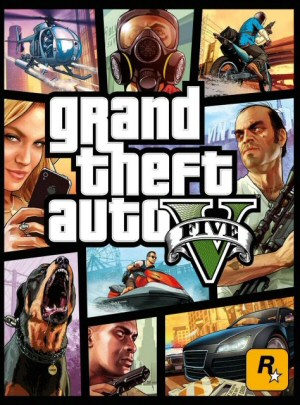
This series began as a cheap little 2D overhead game and grew into the most profitable entertainment product ever made. I have a love / hate relationship with the series.
D&D Campaign
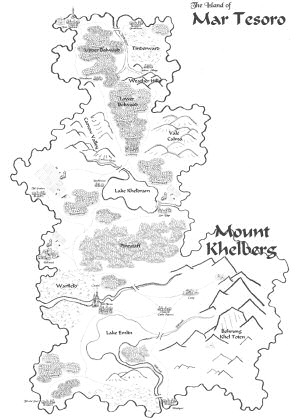
WAY back in 2005, I wrote about a D&D campaign I was running. The campaign is still there, in the bottom-most strata of the archives.
The Gameplay is the Story
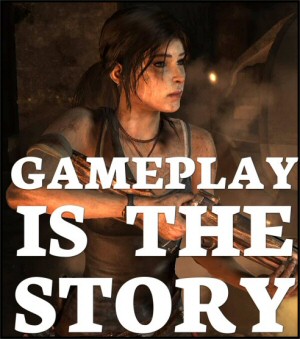
Some advice to game developers on how to stop ruining good stories with bad cutscenes.
 T w e n t y S i d e d
T w e n t y S i d e d
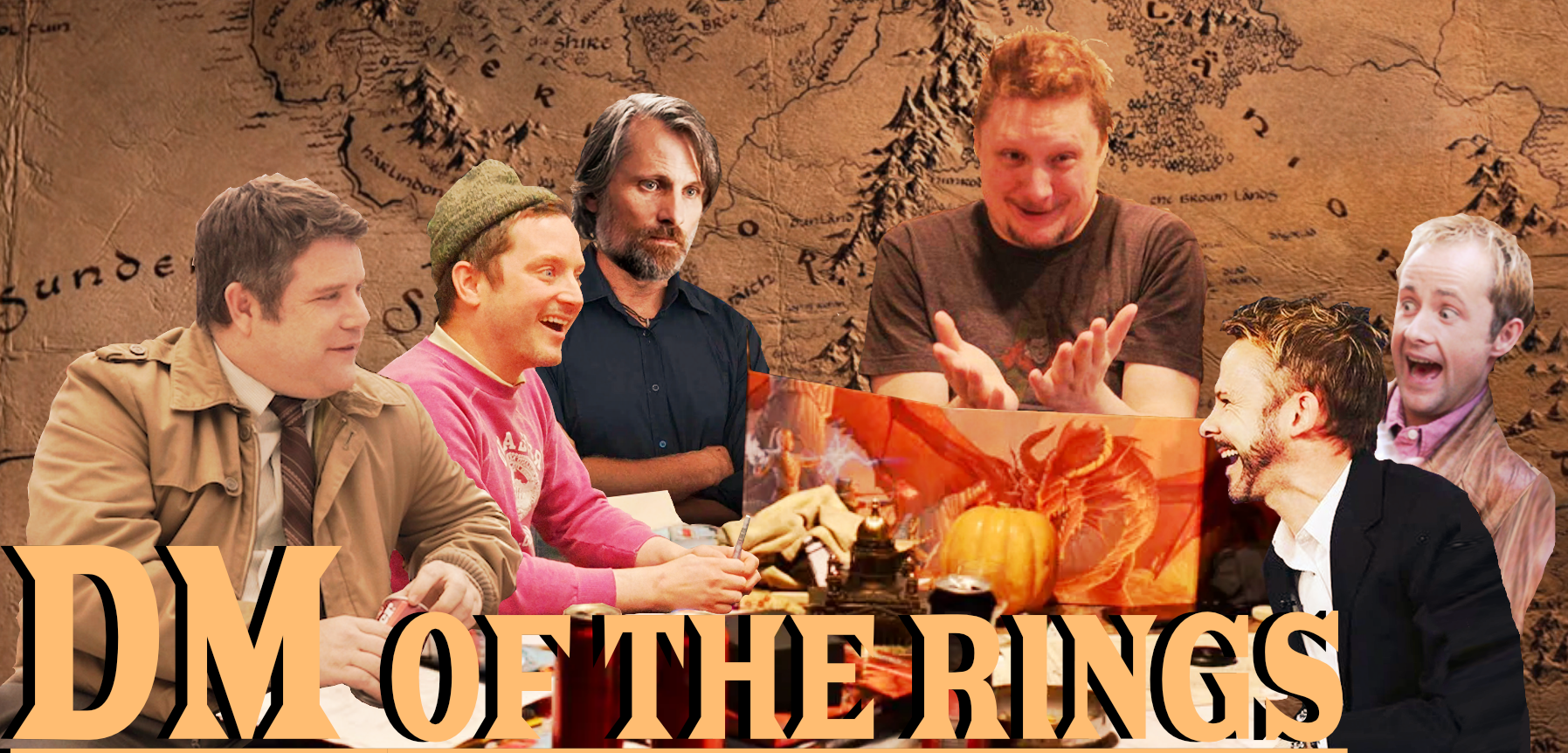
That’s a subtle hint about an adversarial GM isn’t it? The fact that the NPCs never get recognition of any kind. Although in this case, they’ haven’t done much to get songs sung for them.
Still GMs, go the opposite way. If your PCs do cool stuff, have people acknowledge it, it feels good! Then have people pin more and more hope and expectations on them, until the PCs crack under the pressure! My GM who did that to us assured me that it was hilarious to see.
Oh, that’s CRAFTY. :D I have to try that in my next campaign.
Also, pin things to them they never did. Depending on how you want it to go, it can be either the springboard for an adventure (track down whoever is spreading nasty tales about us) or just incite paranoia (There another group, like us, doing good deeds? They gonna come for us over stolen glory?).
A great thing to add realism to a campaign is introduce players to the idea that their’s isn’t the only reality. What they think is going on may not be what anyone else believes. They may have only seen a tiny glimpse. And people may not see the players the same way they see themselves.
In all seriousness, in many DND settings, the party is a very specific level of famous that doesn’t make sense. You’re sufficiently renowned that you can meet with the nobility, and that the queen will send for you with an offer to do her dirty work. But you’re also sufficiently anonymous that you can walk into a tavern and the only person who recognizes you is your shady contact, and you can be stopped on the road by your mortal enemy’s guards and nobody realizes to start lobbing fireballs on sight.
You should be mobbed the moment you get into town with everyone with a sob story asking you to recover their stolen family armor.
And there should be people out there who recognize your party as a threat, whose mission is to oppose you from whatever it is you’re doing. I don’t have a ton of great things to say about Fallout 3, but the fact that Talon Company or the Regulators would just hunt you down on general principles if you were too good or too evil makes a lot of sense.
Ah yes, the Talon Company. Thing is, because it’s a computer game, they can’t actually say what you did to earn your Karma as they don’t know.
“You think you can get away with acting like that?” the Talon Company guy yells at me the first time I got tracked down by a hit squad.
I guess he really hated the way I a) defended myself from murderous raiders, b) helped a crazy woman make a survival book and c) gave water to thirsty hobos…
Ah, Bethesda.
It made a lot more sense in Fallout: New Vegas, where what you were doing was clearly harming a powerful faction during a war. Damn straight Caesar’s Legion hated me, I was actively, deliberately killing their soldiers and undermining their operations in the Mojave – and proud of it.
Yeah. I’m not saying the specifics of FO3 made sense (because they fractally don’t). It just in principle makes sense that SOMEONE’s going to be opposed to “scrappy band of do-gooders” going around messing with the status quo, on the assumption they’ll do something directly opposed to your interests eventually and you might as well nip this in the bud.
In case of a Forgotten Realms-like setting this sorta starts getting layers. On the one hand, somewhat depending on the interpretation, “adventurer” becomes an official (or at least semi-official) career choice. Coupled with things like there being objective and declarative “good” and “evil” it seems kind of obvious both sides would try to keep tabs on potential parties that could either help or hinder them perhaps taking preventative measures in the latter case.
On the other hand if we go the route where the “adventuring party” is less an exceptional group of heroic individuals put together by circumstances or common cause and more of a group of professionals who have pooled their resources to effectively offer mercenary services (though possibly of heroic nature and in service of “good”) the fame thing becomes less obvious. If it’s the case of “we’ve got bugbear raiders stealing cattle” becoming similar to “we’ve got a plumbing problem” in that the response is “call a professional” obviously there is less to be excited about*.
*Before someone brings in The Witcher I think that’s a particular case because witchers, while mercenary, are weird, have an air of mystery to them and are generally controversial making stories of them (whether good or bad) particularly attractive.
It can possibly make sense if you view the team as a black ops kind of unit, who don’t get many tales sung of them, and whose enemies won’t usually have a chance to know their faces, but whose clients know that they can get serious work done.
It doesn’t really work if the players aren’t vetting their clients, and are boasting in random taverns, or otherwise are extremely public. And most groups are extremely public, and don’t vet their clients. But if you want that level of fame to make sense, there are ways it can happen.
But how are DMs supposed to use treacherous quest-givers if the PCs are allowed to vet their employers? :)
Curse your sudden, yet inevitable betrayal!
Never take quests from carnivores.
So here’s an unrelated question but which i’m going to ask here because all the role players on twenty sided are likely to pop their nose onto the GM of the rings (and comments) and as usual comments on this site are interesting and good food for thought.
Anyone had the pleasure/displeasure to play the “Microscope” rpg by ben robbins? If so what are your opinions?
I have an rpg group that has some players for whom life means their presence is a bit patchy and this has meant that at times we haven’t been able to run a session at all (two players down isn’t really viable) whilst at other times (one missing player) we have gone forward with our adventures but it does suck for the player left out for things to go on without them.
As such i have been toying with ideas on how to keep the group meeting regularly whilst not cutting anyone out and staying into the world of cooperative storytelling even with last minute cancellations. On paper Microscope may be the solution to this as we could run it as a tool to flesh out the world and universe around the adventure when players are missing…meaning that at least if the group doesn’t go forward as individuals, the world still recieves a couple of extra bricks here and there.
Lets be clear though for the oncoming discussion:
– I am interested in your opinions on Microsope and it’s ability to act as a tool for what i’ve got in mind (or alternative tools).
– I am not interested (or asking for) opinions or suggestions on how to run my rpg groups or handle absentee players
The films go out of their way to make a very cool set piece without bothering with “how do they EAAAAAT?” type questions. If this was a “town” in the DND sense, Aragorn’s question about a forge would be pretty reasonable. And I’m sure they have one – a magic one. Elrond certainly has one, since he reforges Aragorn’s sword (eventually…:) Being in touch with nature doesn’t mean they don’t have some level of industry.
The brothel….maybe less likely.
Indeed; Galadrial is of the Noldor, the most technically-minded and skilled elves (and as a result the only ones that ever got into any sort of friendly relations with the dwarves, between Eregion and Khazad-dûm), so it’d make sense they might have something.
Is “Tristram” a subtle reference to something, or just the simple gag it appears to be of Aragorn’s player forgetting Bree’s name? It’s not a simple similar-sounding thing like “Broo” or a name that’s come up in the adventure so far (that I remember), which makes me wonder.
It’s a reference to Diablo I believe, where that’s the starting hub area
Indeed the ONLY hub area in original Diablo.
Ah, thanks!